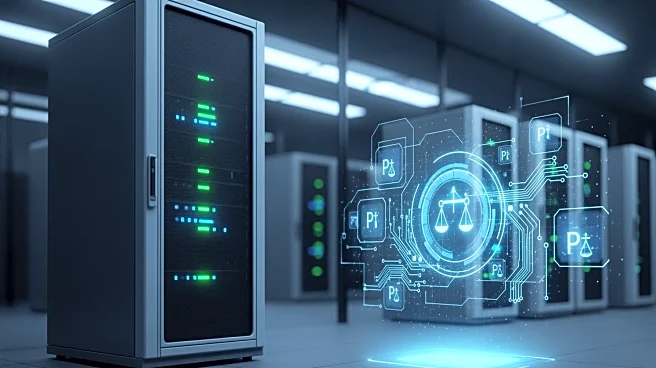What's Happening?
A solo Bitcoin miner has successfully mined block 924,569, earning a reward of 3.146 BTC, which is approximately $265,000 at current market prices. The miner contributed six terahashes per second (TH/s) to the network, a significant achievement given the network's average hash rate of 855 exahashes per second (EH/s). This event marks the 308th solo block mined using CKPool software, highlighting the improbability of such a feat with less than a 1 in 100,000 chance per day. The miner's success is considered one of the luckiest in recent Bitcoin history, as similar solo mining attempts have faced even longer odds.
Why It's Important?
The successful solo mining of a Bitcoin block underscores the challenges and unpredictability of cryptocurrency mining, especially for
small-scale miners. As the network's hash rate continues to rise, the difficulty of mining increases, making it less feasible for individual miners to compete with large-scale operations. This event highlights the potential for significant financial gain despite the odds, encouraging continued participation in the Bitcoin mining community. Additionally, the shift of some mining companies towards AI-focused projects indicates a broader industry trend, potentially affecting the future landscape of cryptocurrency mining.
What's Next?
As the Bitcoin network's hash rate continues to grow, solo miners may face increasing challenges in securing block rewards. The industry may see more miners transitioning to AI and other computing services, as evidenced by companies like Bitfarms and Terawulf. This shift could lead to changes in the mining ecosystem, with potential impacts on energy consumption and profitability. The use of mining-generated heat for residential heating could also gain traction, offering a sustainable solution to energy costs.
Beyond the Headlines
The success of solo mining amidst high network hash rates raises questions about the sustainability and environmental impact of cryptocurrency mining. As miners seek alternative revenue streams, the integration of AI and computing services could redefine the industry's role in technology and energy sectors. The creative use of mining heat for residential purposes highlights the potential for innovative solutions to energy challenges, aligning with broader sustainability goals.















